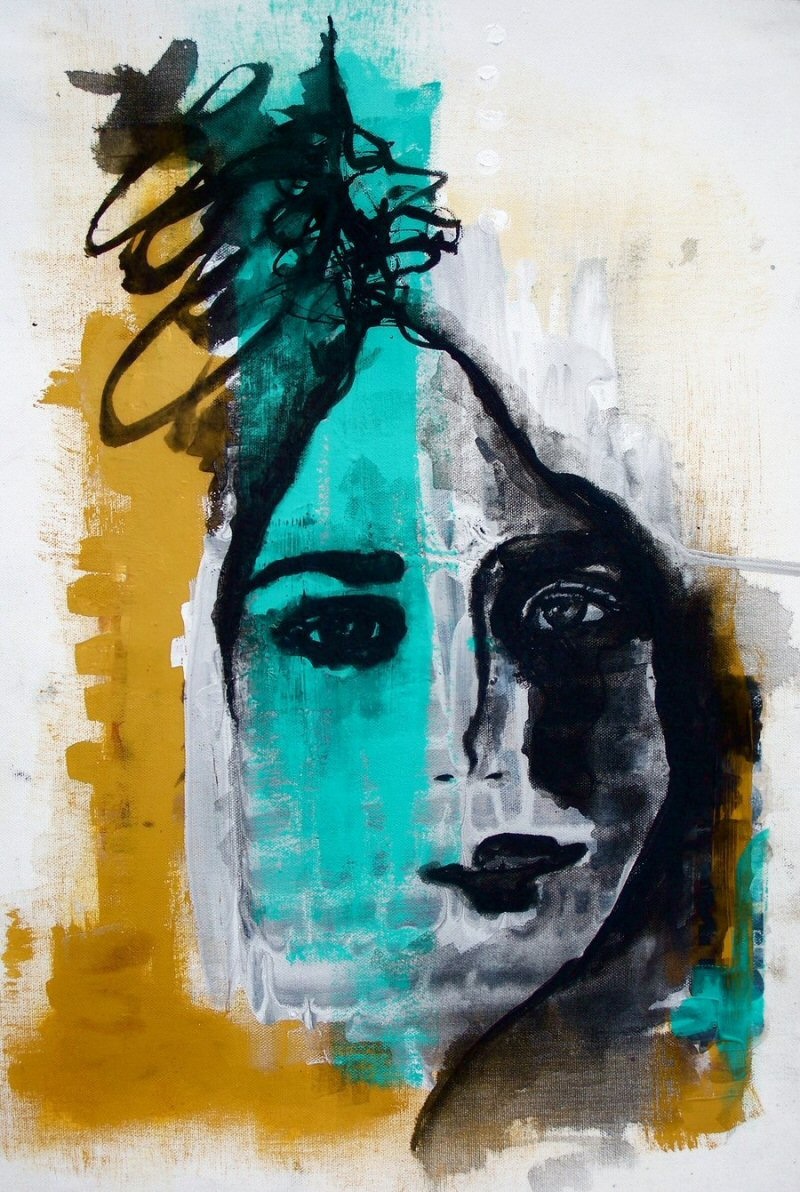My X is an Ape, Lauren West
Two women walk into a bar; they are Lilith and Lot’s wife
and they are lonesome tonight.
You are Lot’s wife
and you are still looking back. I have no home, you say
to the naked woman beside you. You can’t help but
let your eyes linger on her bare breasts. In recent years,
you have felt the erosion of your own body:
you have felt geological, ankles grown into the earth,
standing solemn as the ocean and the wind move around you.
Your body is your home and you wish that you could leave it.
Once you might have worn your desire like a dress—once you might
have tempted, had wings, a one-night stand.
The thing falls apart.
The woman next to you says nothing because you
say nothing: you do not say I have no home
but inscribe it on her forehead,
let it belong to her.
Now you can look at her and call her your reflection; now,
you can look at her and call her yourself.
The thing falls apart. No closure but a question
you do not have the words for; no answer but a late-night and lovesick lament:
if only,
if only,
if only.
Two women in a bar and you are Lilith this time. You are here in this bar and it might as well be anywhere else
except this woman beside you keeps staring at your tits.
Her eyes are glassy with liquor and sadness and
she’s somebody’s wife—
or perhaps a divorcée; it doesn’t really make a difference.
She wants you to possess her, to crawl beneath her skin;
she imagines you avian, reptilian, angelic—you’ve seen it all before
and it’s never a surprise. The thing with this woman is she compels you
to confess—you want to tell her:
I am the serpent and also the fruit,
I am Eden and also the act of casting out.
I am made from the same earth as Adam.
I have always wondered where I became what I am.
It’s possible this woman was beautiful once. You are thankful for time, for your own naked body—when faced
with real beauty, or what might have been beauty, you can always
dismantle it, always say no.
You have nowhere to go, but women just aren’t your thing—you suspect they want to know you,
suspect they want to get inside you: they refuse to make you
demon, which is what you wish you were.
Not one for sacrifice, you offer up nothing;
you let her become you, and leave it at that.
Lilith and Lot’s wife walk into a bar, and you’re the bartender
working the last shift. The bar is almost empty—two guys playing pool;
one standing at the jukebox; a sleepy couple at a table in the corner.
You listen to the conversation these women are not having—
this intercourse of want and not want, of real and not real.
As you wash out a glass, you are glad of your work,
of the boyfriend asleep in your bed,
even the regrettable tattoo on your wrist;
you consider the tragedy of being a myth:
how easy it is to be forgotten—
to start out a woman, become something else
you were never meant to be:
nameless,
a nightjar,
a pillar of salt,
a hypothetical moon.

No Comments